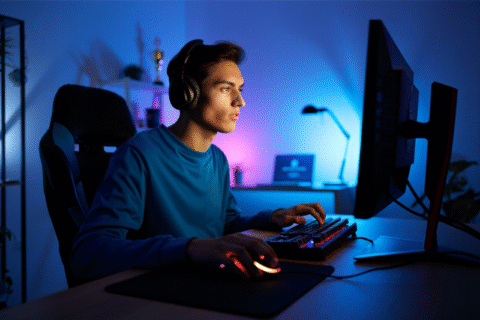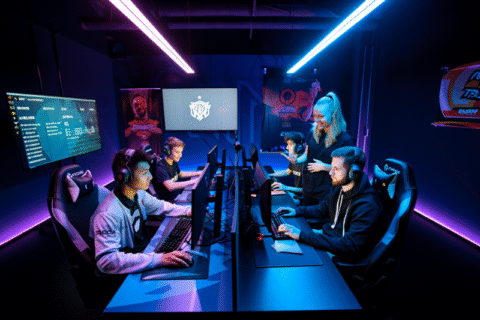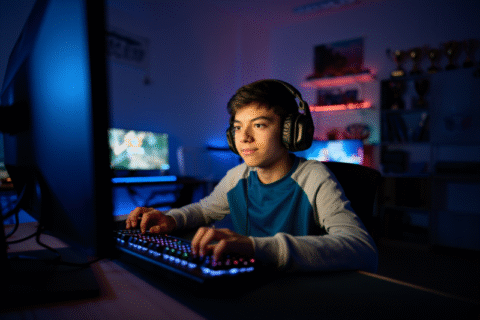
How to Balance Gaming and Daily Life Successfully
In today’s digital age, gaming has evolved from a casual hobby to a competitive world where millions seek to improve their skills and connect with a vibrant community. Whether you’re a professional esports athlete or a passionate gamer, maintaining a healthy balance between gaming practice and daily responsibilities is vital for long-term success and well-being. This guide offers practical strategies rooted in time management, prioritization, and psychological insights to help you navigate this balance effectively.
Understanding the Importance of Balance in Gaming and Life
Achieving harmony between gaming and daily life is more than just preventing burnout. It enhances mental focus, physical health, and overall happiness. An unbalanced schedule can lead to stress, decreased productivity, and social isolation—factors that hinder both gaming performance and personal growth.
Key Benefits of a Well-Balanced Gaming Routine:
- Improved focus and reflexes during gameplay
- Better physical and mental health
- Stronger relationships outside gaming
- Higher motivation and sustained progress
Practical Strategies to Manage Gaming and Daily Responsibilities
1. Prioritize Tasks Using the Eisenhower Matrix
The Eisenhower Matrix categorizes tasks into four quadrants, helping you decide what to focus on:
| Quadrant | Focus On | Examples |
| Urgent & Important | Immediate responsibilities | Work deadlines, family commitments |
| Important, Not Urgent | Long-term goals & growth | Skill training, personal development |
| Urgent, Not Important | Distractions & interruptions | Social media alerts, minor chores |
| Not Urgent & Not Important | Minimal impact activities | Excessive gaming, aimless browsing |
Actionable Tip: Allocate dedicated time for urgent & important tasks first, then schedule blocks for gaming practice aligned with your long-term gaming goals.
2. Develop a Structured Gaming Schedule
Creating a consistent schedule helps manage expectations and reduce stress:
- Set Specific Practice Times: Allocate fixed hours for gaming, e.g., 2 hours after work or school.
- Incorporate Breaks: Follow the 50/10 rule—50 minutes of gaming, 10-minute break—to prevent fatigue.
- Balance Rest and Leisure: Ensure you also schedule time for sleep, exercise, and social activities.
3. Use Time-Blocking Techniques
Time-blocking ensures dedicated periods for activities, minimizing multitasking and distraction:
| Time Block | Activity | Purpose |
| 7:00 – 8:00 AM | Morning routine & exercise | Boosts alertness and energy for the day |
| 6:00 – 8:00 PM | Gaming practice & training | Focused skill development |
| 8:00 – 9:00 PM | Relaxation & socializing | Strengthen community ties, unwind |
Tip: Place your most demanding tasks earlier in the day and reserve relaxing gaming sessions for the evening.
4. Set Realistic Goals and Track Progress
Goals keep your gaming practice purposeful:
- Short-Term: Improve in-game mechanics, reach a certain rank
- Long-Term: Qualify for tournaments, build a streaming audience
Tracking tools (apps or journals) help monitor achievements, identify bottlenecks, and motivate continued effort.
5. Cultivate Self-Discipline and Mindfulness
Discipline sustains your schedule, while mindfulness improves focus and reduces stress:
- Practice meditation or breathing exercises before gaming sessions
- Use alarms or app blockers to discourage excessive gaming
- Reflect weekly on your balance and adjust as needed
Addressing Common Concerns
How much time should I dedicate to gaming daily?
It varies based on your goals and responsibilities. For casual gamers, 1-2 hours may suffice, while aspiring professionals might need 4-6 hours. The key is consistency and quality over quantity.
What if gaming starts interfering with my work or studies?
Reassess your schedule; ensure gaming occurs outside priority hours. Use timers and accountability partners to keep your practice within healthy limits.
How do I stay motivated to balance gaming with daily life?
Set clear, achievable goals, celebrate small victories, and remember your long-term aspirations—whether improving skills or enjoying social connections.
Final Thoughts: Empower Your Gaming Journey through Balance
Effective gaming schedules are not about cutting back on your passion—they’re about making your time more strategic and rewarding. Prioritizing tasks, structuring your day, and practicing self-discipline enable you to sharpen your gaming skills while fulfilling daily responsibilities. Remember, a balanced gamer is a healthier, more motivated, and ultimately more successful competitor in the digital arena.
By implementing these practical strategies, you’ll not only elevate your gameplay but also enhance your overall quality of life. Start today—your optimal balance awaits!


